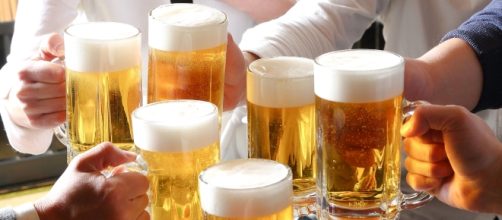Drinking alcohol in Local pubs is healthier than in City Centre bars, Oxford University’s researchers found. People drinking in local pubs are also happier and have a richer Social Life than those in city centre bars, the researchers say.
How are drinking in local pubs and city bars different?
In comparison with city center bars, people drinking in a local pub on a regular basis appeared more socially engaged, more contented in their lives, more trusting other members of their community, the study found. Professor Robin Dunbar who conducted the study said in the university’s press release that social networks are "the most important buffer" against psychological and physical unhealth.
"While pubs are a traditional place for socializing, alcohol boosts endorphin, encouraging social bonding."
Recently, Harvard University also found that close relationships protect people from life’s discontents, help to delay mental and physical decline, and are better predictors of long and happy lives than social class, IQ, or genes, according to Harvard Gazette. Low-moderate consumption of alcohol makes us more willing to take risks and behave more competitively, which might make us more willing to risk trying our luck with a prospective mate, the researchers said.
The study distinguished between community-style local pubs which are generally small and near to their clientele’s workplace or home, and city centre bars which tend to be larger, having a clientele from a diverse population, and commonly lack the community atmosphere of locals.
The study employed a questionnaire-based study of pub clientele, observing behaviours in pubs, and a national survey by the Campaign for Real Ale (CAMRA), Oxford University said.
City centre bars less engaging
In city centre bars, people had “significantly” smaller social networks and felt less engaged with, and less trusting of their communities, the researchers said. There, people were less engaged with each other, moving rapidly from one brief conversation to another. They formed much larger groups than natural conversation group size and the typical size of the support clique, the researchers said. They also had less time to get to know each other.
In local pubs, people were more likely to be in ‘conversational’ sized groups.
Colin Valentine, CAMRA’s National Chairman, said in the press release that pubs offer a responsible and supervised community setting for a drink with friends. Everyone needs nearby local pubs, and therefore pubs should be protected, Valentine said, pointing out 21 pubs are closing across the UK each week.

